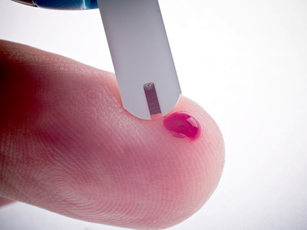Just because it’s winter doesn’t mean that you have to experience tiredness during winter. Quite a few people end up having more energy during the wintertime. Сравнение моделеи openai gpt.
These people look forward to the winter sports, cuddling up by a cozy fireplace with their loved one, and frolicking in the snow with a big winter-loving dog.
Take the questionnaire and give your answers the consideration they need to determine what could possibly be going on with you.
 Tiredness During Winter Questionnaire
Tiredness During Winter Questionnaire
1. Do you find yourself getting angry when the days become shorter and you have a lot less sunlight? Yes No
2. If you could pinpoint a specific day when your fatigue sets in for the winter, what day would that be? _________
Is it related to the week when you have the least amount of sun? Yes No
3. If you take a vacation to a sunny climate during the middle of the winter, does your extreme tiredness during winter lift? Yes No
How long does it stay lifted? _________
4. Are you indoors working during the daytime with fluorescent lights? Yes No
5. Have you ever switched the bulbs inside your home to natural sunlight bulbs which are also called full spectrum bulbs? Yes No
If you did, what happened to your extreme tiredness during winter? _________
How long were you exposed to them each day? __________
6. In the springtime, does your extreme tiredness during winter go away? Yes No
If you could pinpoint the lifting of the tiredness to a certain day, what day would that be? ___________
7. Have you had a vitamin D test done recently by your physician? Yes No
What were the results? __________
8. Are you staying up very late at night? Yes No
Comments About This Questionnaire
You may not know all the answers to these questions right now. You may want to take a winter to determine what is really happening with your health.
What you’re looking for is a seasonal variation in how you feel, which is usually based on the amount of sunlight that you receive during the day.
Melatonin And The Sunshine Cycle
 The sunshine does not have to be felt on the skin but is perceived by the ganglion cells in your eyes, which register exactly how much you get.
The sunshine does not have to be felt on the skin but is perceived by the ganglion cells in your eyes, which register exactly how much you get.
The amount of daylight is relayed to your hypothalamus and pineal gland, which then creates melatonin in response. Artificial lighting interferes with the normal response.
The melatonin in your body sets up your circadian rhythms and tells you when to be tired and when to stay alert and awake.
If you notice sluggishness in winter, it could mean you need more melatonin or more vitamin D in your blood.
It could also mean your sleeping hours are not close to what they should be and you are staying up too late at night. Do try to go to bed by 11 p.m.
How To Find Out Where Your Levels Are
 Getting checked for either vitamin D or melatonin is a relatively easy process. Simply call your doctor and ask to be checked for vitamin D and melatonin.
Getting checked for either vitamin D or melatonin is a relatively easy process. Simply call your doctor and ask to be checked for vitamin D and melatonin.
Both are blood tests and the answer could come back to you within a week; providing information that reduces your fatigue this winter.
If your vitamin D levels are less than 50 ug on the blood test (Normal is 30-100 ug according to the laboratory), it’s entirely possible that all the fatigue you have is related to a vitamin D deficiency.
You don’t want to be at the low end of the range.
Doctors may tell you that you need not worry about levels unless they are less than 20 ug, but this is not true. Everyone has a biochemical individuality for each of the nutrients, vitamin D included.
It’s possible you could need more and are always going to be depressed and tired unless your levels are at 65 ug.
When your levels are low, you will feel depressed, have low immune system function, and experience extreme fatigue in winter. And it’s just not worth it to go through another bad winter again.
The thing to do is get your vitamin D levels checked and if for some reason your doctor won’t run the test, run it yourself by doing the test online.
One good place to run both tests is at Life Extension Foundation.
What To Do When Levels Are Low
When vitamin D levels are low, supplementation is the answer.
Usually doctors may offer you a pill of 50,000 IU vitamin D per week, or you can take oral supplements yourself from the health food store of 10,000 IU vitamin D3 per day for three months.
 As your levels rise, the extreme tiredness should start to lift. When melatonin levels are low, supplementation is needed. About 5 mg per day is usually the dosage used.
As your levels rise, the extreme tiredness should start to lift. When melatonin levels are low, supplementation is needed. About 5 mg per day is usually the dosage used.
If you do either of these tests via the Life Extension Foundation, you can contact the doctors on staff there and ask them how to interpret the results.
Although they cannot function as your personal physician, they can explain a lot of the background information you may be lacking.
Don’t suffer with extreme tiredness during winter anymore. Get these two simple things evaluated and corrected and then have boundless energy! You deserve it.

